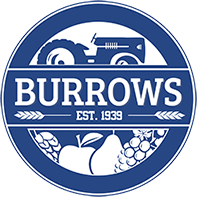Skid Steer Buying Guide
 As a vital tool for those working in construction, agriculture or site management, skid steer loaders have become increasingly commonplace on farms and worksites everywhere. These powerful machines can help you move dirt, gravel, debris and other payloads with ease.
As a vital tool for those working in construction, agriculture or site management, skid steer loaders have become increasingly commonplace on farms and worksites everywhere. These powerful machines can help you move dirt, gravel, debris and other payloads with ease.
If you’ve never bought one of these vehicles before, you’ll need to take some time to do research to see what model will best suit your needs. Burrows Tractor, with locations in Yakima and Wenatchee, WA, as well as North Plains, OR, is your local farm equipment dealer. As such, we’ve provided this guide to buying skid steer loaders so you know what to expect while shopping around and what facets you need to focus on.
Consider Frame & Size
First, you’ll want to think about the size that your machine will need to be in order to work in the area of operation. Skid steer loaders are convenient because they’re very compact machines that are easy to maneuver so they can work in fairly tight spaces. You’ll be able to choose between small, medium and large frame sizes, each with its own specialization.
Small units are the best for very small workspaces and easy to transport on a trailer, but they won’t be as efficient. Large units are capable of lifting higher, which is excellent if you need to empty your loads into dump trucks with high side walls. If you try to cram a large machine into a small space, you’ll soon run into problems. A medium-sized machine may be a good balance between the increased power of large models and the compact size of smaller ones.
Engine Power & Fuel
The size of your skid steer loader isn’t the only important factor. How powerful the engine is matters, too. Think about how much horsepower and torque you may need. Horsepower determines how quickly your machine will perform its primary functions, while torque indicates the strength underlying that work. You may need to run a smaller machine at lower engine RPMs in order to get enough torque, which can improve fuel efficiency.
You’ll also want to think about the type of fuel your loader needs. Most skid steer loaders are powered by diesel fuel, but you can also find gasoline-powered versions. Diesel engines are powerful and efficient, but cost much more to maintain. Gasoline engines are more environmentally friendly and easy to start. This may come down to personal preference.
Operator Comfort
Comfort may sound like something of a luxury when you’re doing hard labor, but it’s important that you, as the operator of your machine, are comfortable while you’re working. A cab that isn’t ergonomically designed will put strain on your joints and muscles, fatiguing you and potentially causing you to lose focus, which is dangerous whenever you’re operating heavy machinery.
Look for models that have cabs which are easy to enter and exit, ideally with adjustable seats. Make sure that you can reach and manipulate the controls easily when you’re seated. You’ll also want to have sufficient visibility from your cab so you can see the edge of your bucket without having to lean outside of the cab.
Necessary Attachments
You may find that you’ll need to add some attachments to your skid steer in order to improve its function. Consider what types of jobs you’ll be using your machine for, then determine what implements you’ll need to efficiently and safely perform those tasks.
Don’t just attach anything to your skid steer without making sure your particular model can handle a given attachment. Look at the operating capacity and auxiliary hydraulic flow of your particular machine. You want your loader to be powerful enough to handle your attachments.
Looking for skid steers for sale? Visit one of our locations in Yakima, WA, Wenatchee, WA, or North Plains, OR. We provide new and used farm equipment for sale, including skid steer attachments. Burrows Tractor serves the states of Oregon and Washington. We welcome our customers coming from the cities of Kennewick, Ellensburg and Richland, WA!
